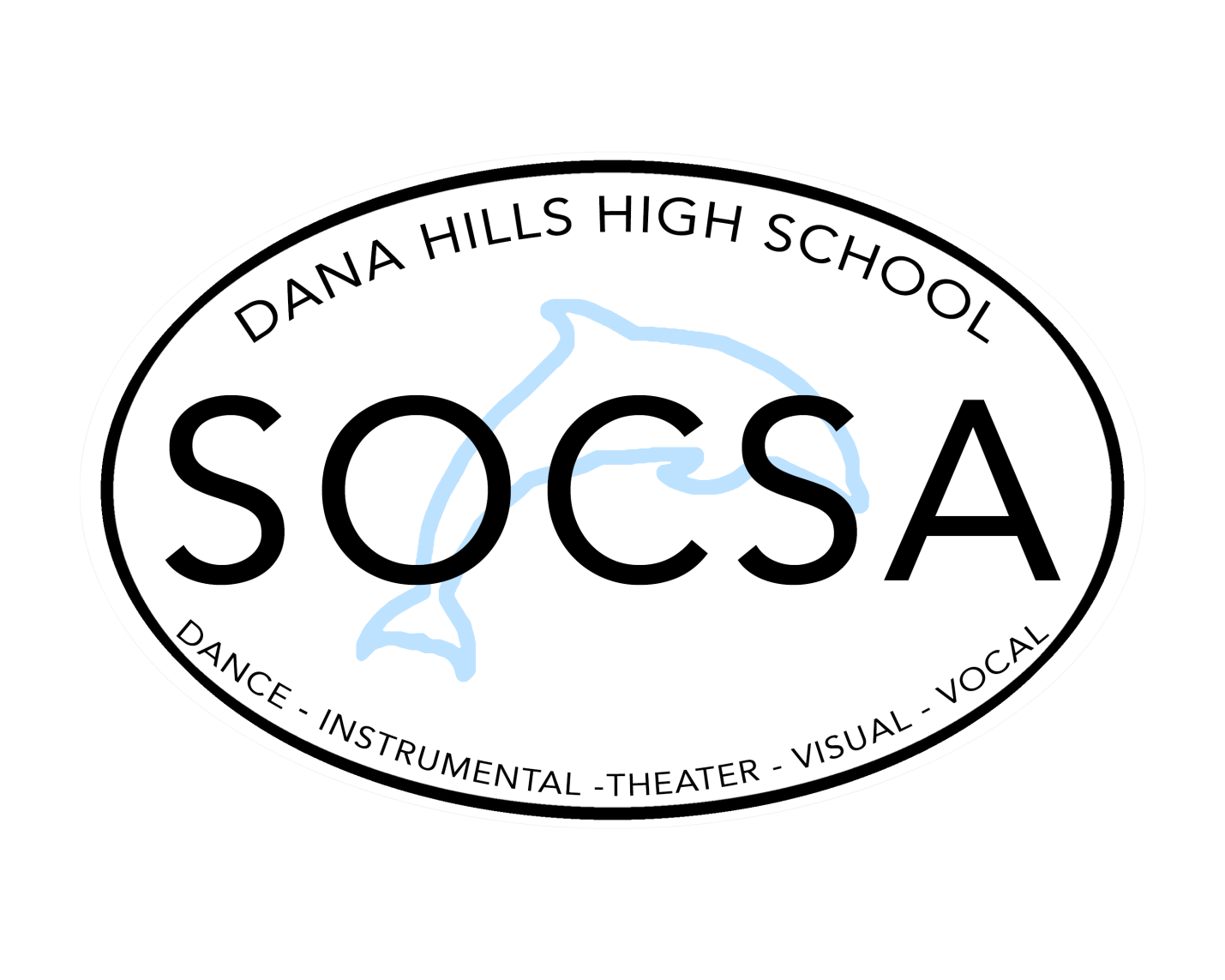Vocal Music
Vocal Music is going to Hawaii for our annual trip in the Spring! Forms are due to Mr. Medina on September 5th. First payment installation is due to the Activities window on September 5th as well. Contact rmmedina@capousd.org for more information!
Vocal Music is singing the National Anthem at Angels Stadium on Friday, September 8th! Tickets available from $20.
Department Overview
The South Orange County School of the Arts Academy (SOCSA) Vocal Music student receives intensive training in a wide variety of topics related to the vocal art. Primary emphasis is given to singing technique, theory and musicianship, vocal ensemble experience, theatrical training, diction in English and other languages, understanding of musical styles, and stage movement.
First-year students will focus their attention on the development of all the technical skills and background needed for truly artistic vocal performance, and will be given training in theory, composition, and recording techniques using computers and electronic keyboards. Returning students will receive advanced technical training, as well as an introduction to music history and opportunities for individual competitions for prizes and scholarships.
All vocal students will be given ample opportunity to perform, both individually and in a variety of vocal and theatrical ensembles. The SOCSA music staff is dedicated to giving each student the highest possible level of education, and will frequently invite guest artists to work with our vocal students. The ultimate goal of the SOCSA Vocal Music program is to produce talented and capable musicians who will earn outstanding college and university recommendations, command attention in the world of professional music, and develop a lifelong appreciation and love for all the arts.
Course Descriptions
A Cappella Choir
This course is the top large performing vocal ensemble at the school. The student gains greater proficiency in blend, balance, intonation, interpretation, and diction as related to a large ensemble experience. The student performs and stylistically analyzes music from all periods of vocal literature, specializing in the task of unaccompanied singing. This group performs at assemblies, concerts, and festivals. Attendance at extra rehearsals and all performances is required.
Commercial Music
Students will learn basic skills and theory through music composition, production, performance, and sound reinforcement. It will include experience in recording technology and the use of music computer and MIDI systems.
Concert Choir
This course provides specialized development of the treble voice and performance opportunities in traditional treble voice literature. This is a performing group and attendance at all concerts is required. The student can be recommended for membership into a more advanced vocal ensemble upon demonstration of satisfactory proficiency.
Madrigals
This course provides the talented vocal student an experience in a small performing intricate, demanding literature. The student gains greater proficiency in independent part singing, artistic interpretation, musical understanding, and solo performance. This ensemble performs compositions from all periods of vocal literature, including those in madrigal style. This group performs at assemblies, concerts, and festivals. Attendance at extra rehearsals and all performances is required.
Drama Musical Comedy
This course provides the student with the opportunity to improve and showcase talents in drama, music, or dance, culminating in general public performances.
Vocal Production
This course provides individual voice development to the student, ranging from intermediate to advanced levels. The student gains technical proficiency, knowledge of stylistic interpretation, and familiarity with many styles of music. Selected students sing solos at clubs, concerts, and civic functions.
AP Music Theory and Dictation
This course is an intensive study of the credits of musical structure in the common practice periods of Western music, including aural recognition, writing, and analysis of melody, rhythm, chord structure, and the simple credits of musical form. Also included are the accurate notation of melody and rhyme from dictation and the development of sight-singing skills. The course is designed to be followed by a five-unit course in counterpoint, harmony, and formal analysis, and the entire ten-unit sequence should prepare the student for the Advanced Placement Examination in Music Theory.


